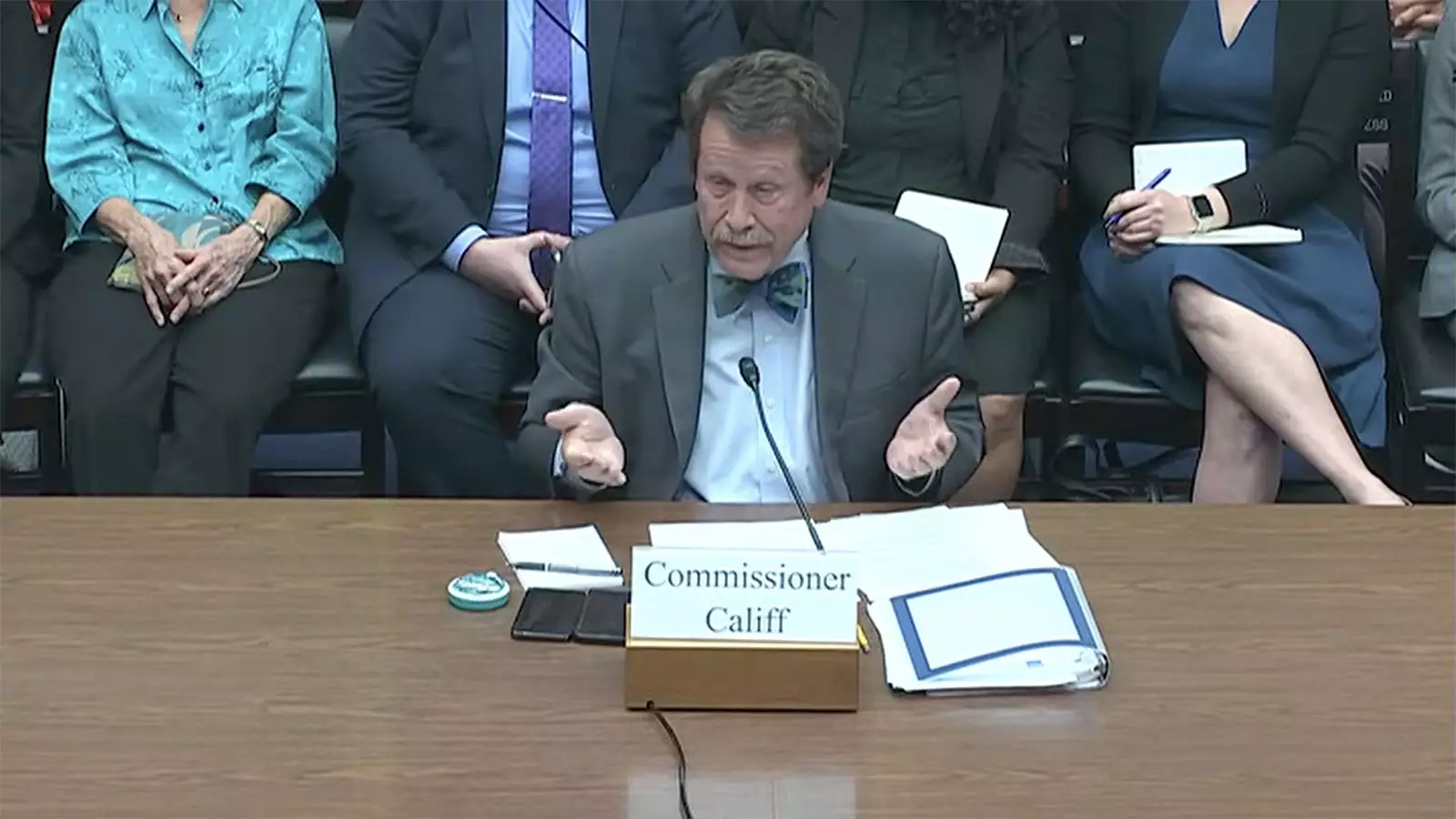During a recent hearing of the House Committee on Oversight and Accountability, Republican lawmakers did not hold back in their criticism of FDA Commissioner Robert Califf, MD. Committee Chair Rep. James Comer (R-Ky.) kicked off the proceedings by accusing the FDA under President Biden of dysfunction and not fulfilling its responsibility to ensure the safety and efficacy of food and drug products in the country.
One particularly contentious issue raised during the hearing was the authorization of COVID-19 vaccines. Rep. Paul Gosar (R-Ariz.) claimed that granting emergency use authorization for the vaccines was a mistake, as he pointed out that they do not prevent virus transmission and have been associated with injuries and deaths reported to the Vaccine Adverse Event Reporting System. Gosar questioned Califf on whether he regretted the FDA’s role in not curbing chronic disease in America. Califf defended the initial vaccine trials, which showed a significant reduction in infection rates, but acknowledged that the virus mutated, impacting vaccine effectiveness. He highlighted that areas with higher vaccination rates have lower mortality rates, emphasizing the importance of vaccination despite potential side effects.
Moreover, Gosar criticized the FDA’s stance on ivermectin, claiming the agency engaged in a smear campaign against the drug. Califf countered this by stating that randomized trials have not shown any benefits of ivermectin in treating COVID-19. He clarified that while doctors have the freedom to prescribe ivermectin off-label, the FDA’s stance is rooted in scientific evidence.
Another pressing issue discussed during the hearing was the infant formula shortage crisis. Rep. Lisa McClain (R-Mich.) probed Califf on the FDA’s handling of the shortage, questioning who knew about the potential crisis and when. Califf, who recently assumed his role as FDA commissioner, acknowledged being informed about a significant infant formula recall on the day of his confirmation. However, internal emails obtained by the committee suggested that FDA officials were aware of supply issues as early as February. This raised concerns about the timing of actions taken to address the shortage.
McClain also questioned why it took President Biden three months to invoke the Defense Production Act in response to the shortage, insinuating a lack of communication or action between the FDA and the administration. Califf refrained from elaborating further, citing the ongoing investigations and evidence presented by the committee. Rep. Jamie Raskin (D-Md.) highlighted the bipartisan efforts to address supply shortages and strengthen FDA oversight, pointing out that some of these initiatives faced opposition from over 200 Republican representatives.
In addition to the previous discussions, the hearing delved into the FDA’s oversight of food safety and inspections. Raskin commended the FDA’s swift response to a lead contamination issue in applesauce packets, emphasizing the agency’s role in protecting public health. Califf likened the FDA to referees in a game, where the industry acts as the first line of defense. He clarified that while the FDA may not have the resources to inspect every private manufacturing facility, it can enforce testing protocols and standards for manufacturers to ensure product safety.
Regarding the tainted applesauce incident, Califf pointed out that mandatory testing at the point of importation could have detected the contamination earlier, preventing potential harm to consumers. This case highlighted the need for robust oversight and collaboration between regulatory agencies, manufacturers, and lawmakers to uphold food safety standards and protect public health.
The hearing illuminated various challenges facing the FDA in fulfilling its regulatory duties. While criticisms and concerns were raised by lawmakers, the discussions underscored the importance of transparency, accountability, and evidence-based decision-making in safeguarding the nation’s health and well-being. Collaboration between government agencies, industry stakeholders, and legislators will be crucial in addressing these issues and ensuring the safety and efficacy of food and drug products for all Americans.


Leave a Reply